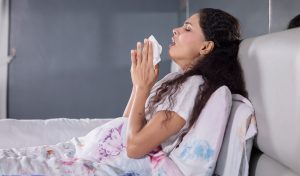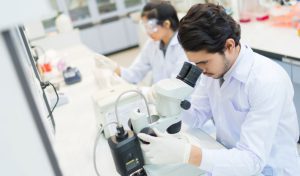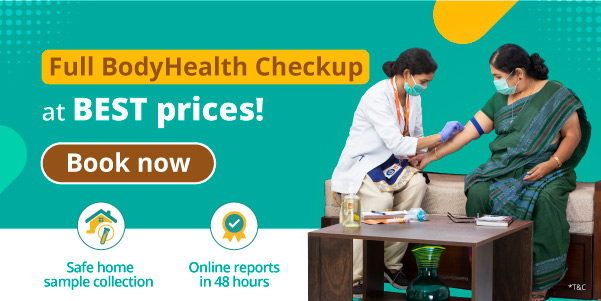As we anticipate the arrival of a deadly third wave of COVID-19, more and more people are being vaccinated in order to prevent the increasing rate of mortality due to the virus. While vaccination may not seem to be the means to prevent COVID-19 re-infection, it is definitely proven to bring down the severity of the infection, the rate of transmission and the need for hospitalisation.
Several studies regarding the vaccine, in all parts of the world, are still on. But one must remember that any of these vaccines available to you are efficient and must not be avoided.
As the name suggests, it means contracting a second time COVID-19 after being infected previously and after recovering from the virus. While quite a few cases of COVID-19 re-infection have been reported, reinfection remains rare.
It is a fact that our immune system can remember certain infections very well but tend to forget others, especially the ones that appear in a changed form may be due to mutation and the emergence of newer variants. In such cases, the antibodies that our immunity produced may not be as responsive as to the originally encountered strain. It is also possible to get an infection with the same strain again, however, there are high chances that your body’s immunity will control the spread of infection and prevent you from getting a severe illness. The severity of illness and complications also depend on other pre-existing medical conditions of a person. It is important to understand that anyone can get reinfection with COVID so, stay safe by following COVID appropriate behaviour and get a full course of vaccination.
Various factors can make a person vulnerable and may increase the risk of COVID-19 re-infection.
Once a person is fully vaccinated, the defence mechanism of the body allows them to recognise the virus and fight it. One must remember that none of these vaccines claims to have 100% efficacy. The only assurance these vaccines provide is that if you get re-infected with COVID-19 once you are fully vaccinated; your infection will be far less severe and symptoms will be mild. The virus has already taken innumerable lives and getting vaccinated is your best bet. But it does not guarantee 100% protection from re-infection.
The Delta variant is a concern for all and studies show that most of the vaccines are effective against it. As the virus has mutated several times, it has become more and more difficult to keep track of it. It has only become stronger, faster and created havoc around the globe.
Another important thing to note here is that it takes about two weeks for your body, after vaccination, to build immunity against the virus. It is possible to contract the virus immediately after getting vaccinated. This is why even if you are fully vaccinated, you must continue to follow the guidelines and COVID-19 appropriate behaviour sincerely.
COVID-19 vaccination not only ensures your safety but also protects people around you as the transmission rate decreases. A higher vaccination rate will make outbreaks less likely and will help to achieve herd immunity. In the long run, It may effectively reduce certain restrictions as well as the socio-economic aftermath of the pandemic.
As we continue to learn more about COVID-19 re-infection, it is critical that we do not question the importance of vaccination. Yes, fully vaccinated people can get re-infected. But they are also capable of fighting it back better than non-vaccinated people. This is a battle we are fighting together and even if there is one unprotected individual, none of us is completely safe. Wear a mask, maintain distance, wash hands frequently and get vaccinated.
Disclaimer: The information provided here is for educational/awareness purposes only and is not intended to be a substitute for medical treatment by a healthcare professional and should not be relied upon to diagnose or treat any medical condition. The reader should consult a registered medical practitioner to determine the appropriateness of the information and before consuming any medication. PharmEasy does not provide any guarantee or warranty (express or implied) regarding the accuracy, adequacy, completeness, legality, reliability or usefulness of the information; and disclaims any liability arising thereof.
Links and product recommendations in the information provided here are advertisements of third-party products available on the website. PharmEasy does not make any representation on the accuracy or suitability of such products/services. Advertisements do not influence the editorial decisions or content. The information in this blog is subject to change without notice. The authors and administrators reserve the right to modify, add, or remove content without notification. It is your responsibility to review this disclaimer regularly for any changes.
Countries all over the world have been fighting against the novel coronavirus using preventive measures such as social distancing and lockdowns. After India being in lockdown for almost half a year, certain relaxations have gradually been implemented to resume economic activities.
Amidst the rising number of new cases daily, the first documented case of reinfection with Covid-19 was reported in a 33-year-old man in Hong Kong almost 4 ½ months after he recovered from his first infection. Closer to home, recently there have been reports of reinfection cases in Bangalore, Delhi and Mumbai, especially amongst healthcare workers. Researchers in India have also reported few cases with asymptomatic reinfection of Covid-19.
In simple words, reinfection means that a person was infected once, cleared the infection and then the person was infected again.
Initial evidence suggests that normally, in case of an infection, the COVID Immunoglobulin G (IgG) antibody is tested positive after 2-3 weeks of the infection. However, in certain cases, the antibody tests negative, which means that the person does not develop immunity after infection. Another possibility could be that the antibodies are short-lived and disappear quickly, thereby making the patient susceptible to reinfection. Thus, reinfection cases mean that the antibodies may not be produced by every patient or if they do develop, they may not last long enough, and therefore, allowing the virus to enter the body and cause the disease again.

The World Health Organisation (WHO) has stated that there is currently no evidence that people, who have recovered from COVID-19 and have antibodies, are protected from a second infection.
Though the patient from Hong Kong experienced a cough, sore throat, fever and headache during his first infection, he was asymptomatic during his second infection. On the contrary, a 25-year-old man in the US developed breathing difficulties and pneumonia after getting re-infected with COVID-19, despite having only mild symptoms during his first infection.
Although there could be a chance that the virus was quite low enough to go undetected and appear negative on a test, only to increase and be picked up in the next test, the question arises as to whether the same virus has resurfaced again or is the current infection caused due to another viral event.
Determining reinfection is quite a challenging process. Genetic material gathered from the first and second swabs of the patient must be analyzed and sequenced by using genetic engineering. If there are differences that show up during sequencing, it means that reinfection has occurred. If the sequences match, then it means that there could be a relapse.
As of now, health officials in India are of the opinion that reinfection with COVID-19 is very rare. Observations till date have shown that only mild infections have occurred and therefore, this issue is not of serious concern now.
As per early-stage reports from vaccine clinical trials being conducted worldwide, the vaccine produces less immunity than an infection. There is still a lot of testing and data that is required in order to ascertain the level of immunity that the vaccine would provide. However, we may require booster doses in order to maintain immunity and avoid infection.

Read more about: Difference between Covaxin vs Covishield Vaccine
Herd immunity is based on the principle that a disease can be eradicated if most of the population is immune to it. With cases of reinfection being reported and confirmed, researchers are increasingly sceptical about achieving herd immunity since it may be impossible to achieve. Once again, more research is needed in order to confirm this fact.
Recovery from COVID-19 does not mean that you are immune to the disease. You should avoid getting complacent and continue maintaining hand hygiene, wearing masks and ensuring social distancing even after recovery.
Since COVID-19 is a relatively new disease, there is not much data available to understand the kind of long-term immunity that patients develop after they have recovered from the infection.
With respect to the novel coronavirus and COVID-19, a lot is still left to be learned. Research is still underway in order to understand various aspects of the disease and its threat of reinfection as well as the vaccine and immunity. In all cases, health officials have advised that the chances of reinfection are rare and not a cause of serious concern.
Is it right to take care of your health first? Yes! It is.

Disclaimer: The information provided here is for educational/awareness purposes only and is not intended to be a substitute for medical treatment by a healthcare professional and should not be relied upon to diagnose or treat any medical condition. The reader should consult a registered medical practitioner to determine the appropriateness of the information and before consuming any medication. PharmEasy does not provide any guarantee or warranty (express or implied) regarding the accuracy, adequacy, completeness, legality, reliability or usefulness of the information; and disclaims any liability arising thereof.
Links and product recommendations in the information provided here are advertisements of third-party products available on the website. PharmEasy does not make any representation on the accuracy or suitability of such products/services. Advertisements do not influence the editorial decisions or content. The information in this blog is subject to change without notice. The authors and administrators reserve the right to modify, add, or remove content without notification. It is your responsibility to review this disclaimer regularly for any changes.